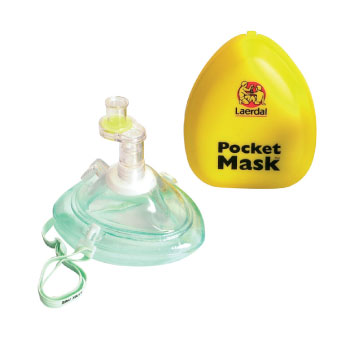Information on COVID-19 is developing on a regular basis. The information provided below is the recommendations at the time of publishing and based on the information available at that time.
UPDATE Updated guidance in an emergency to cover a casualties face with cloth where invection is suspected
What is COVID-19?
COVID-19 is a new strain of Coronavirus first identified in Wuhan City, China in January 2020. The Coronavirus group is common across the world.
COVID-19 provides symptoms of a cough, difficulty in breathing and fever, which develop within 14 days of exposure. These infections can cause more severe symptoms with older people, people with weak immune systems or long term conditions.
At this time there is no treatment for COVID-19.
Source: Gov.uk accessed 13/03/2020 13:59
How many cases do we have in the UK?
As of 09:00 am on the 12 March 2020 there were 590 confirmed cases and 8 people had died.
There have been 29,764 people tested as a precaution to check if they have COVID-19 and 29,174 have been confirmed negative.
Source: Gov.uk accessed 12/03/2020 15:55
Is there a risk of providing first aid in the community?

The virus is spreading throughout the world, but at the current time, the number of cases in the UK is low.
The current risk to individuals not receiving first aid would be higher than the likelihood of contracting COVID-19.
When providing first aid, it is important to follow standard hygiene procedures to minimise the risk of contamination. These include:
- wearing medical gloves
- clearing up any vomit or blood and disinfecting that area
- disposing of waste correctly, ideally into clinical waste as carried by the ambulance service
- washing hands after treatment with hot water and soap or cleaning hands with alcohol-based hand gel where soap and water is not available
- utilising face masks during resuscitation
Where COVID-19 is suspected highlight this to emergency services when placing a call for assistance.
Is there a risk when carrying out cardiopulmonary resuscitation (CPR)?
Whenever you carry out CPR on an unknown person, there is some risk of cross-infection, associated with giving rescue breaths. This risk is normally very low and is balanced against the fact the person is in cardiac arrest and will die if no action is taken. The risk of cross-infection can be reduced further by using a face shield or face mask as a barrier between the first aider and the casualty.
As COVID-19 is spreading and an individual in the community may have COVID-19 which could be contracted through rescue breaths, the Resuscitation Council are providing interim updated advice where compression-only CPR can be provided.
The advice recommends that you follow the following guidance:
- Recognise someone is in cardiac arrest, by confirming someone is unresponsive and seeing that there is an absence of life with no obvious signs of normal breathing.
During this time you should not check for breathing by placing your ear or cheek near the person's mouth but watch for effective chest movement. - Call an ambulance and if you believe the person may have COVID-19, inform the ambulance service during the call.
- If the first aider has access to clinical gloves, face shields, face mask, apron (personal protective equipment (PPE)) they should be utilised
- If you believe there is a risk of infection, you should place a cloth/towel over the casualties face and commence compression-only CPR, placing your hands in the centre of the chest and compressing at a rate of 100-120 compressions a minute.
- You should utilise an Automated External Defibrillator (AED) as soon as one is available. The AED will significantly increase the casualties chance of survival and will not increase the risk of cross-infection.
- After performing CPR, the first aider should dispose of all PPE safely, ideally into clinical waste as carried by the ambulance service
- All first aiders should wash their hands with soap and water after providing first aid. If soap and water are not available, an alcohol-based hand gel should be utilised.
Source: Resuscitation Council (UK) accessed 12/03/2020 16:00
How does this affect Paediatric resuscitation where collapse is normally due to respiratory distress?
A child in most cases will collapse from respiratory distress before cardiac, however not carrying out any first aid will quickly lead to loss of life. First aiders who are not trained in Paediatric First Aid, the key is to act quickly to call ambulance support and to start cardiopulmonary resuscitation.
Where individuals are trained in Paediatric First Aid, it is important first aiders act quickly to stop an unresponsive child going into cardiac arrest. The resuscitation council have released the following statement.
'It is likely that the child/infant having an out-of-hospital cardiac arrest will be known to you. We accept that doing rescue breaths will increase the risk of transmitting the COVID-19 virus, either to the rescuer or the child/infant. However, this risk is small compared to the risk of taking no action as this will result in certain cardiac arrest and the death of the child.'
Source: Resuscitation Council (UK) accessed 12/03/2020 16:00
How can I ensure my hands are clean after providing first aid?
The following video from the NHS looks at how to prevent the spread of infection through effective hand washing.
Further reading
https://www.nhs.uk/conditions/coronavirus-covid-19/
https://www.who.int/emergencies/diseases/novel-coronavirus-2019/advice-for-public







